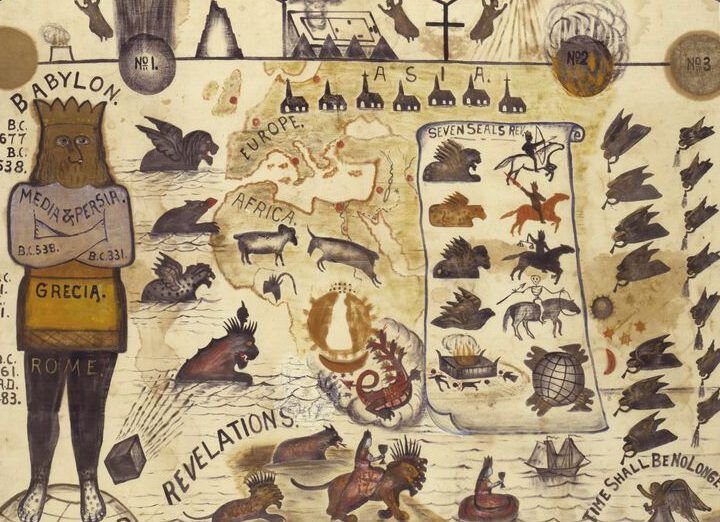In which part of the Bible says that we will eat each other? This is a question that has caused controversy and confusion among many readers of the Bible. Some interpret certain verses as evidence that cannibalism is condoned or even encouraged in the Bible. However, others argue that these verses are being taken out of context and that the Bible does not actually promote cannibalism.
Bible: The law of attaction
Biblia: La ley de la atracción
The Controversy
One of the main reasons for the controversy surrounding cannibalism in the Bible is the different interpretations of the text. Some people believe that certain verses, such as those found in the book of Leviticus, condone cannibalism. For example, Leviticus 26:29 states, "You will eat the flesh of your sons and the flesh of your daughters." However, others argue that these verses are being taken out of context and that they are not meant to be taken literally.
Another verse that is often cited as evidence for cannibalism is found in the book of Jeremiah. Jeremiah 19:9 states, "And I will make them eat the flesh of their sons and their daughters, and everyone shall eat the flesh of his neighbor in the siege and in the distress, with which their enemies and those who seek their life afflict them." Again, some interpret this verse as evidence that cannibalism is condoned in the Bible.
However, those who argue against the literal interpretation of these verses point out that they are often used in a metaphorical sense. For example, the verse in Jeremiah may be referring to the destruction of a city and the desperation that can lead people to do unthinkable things, rather than actually promoting cannibalism.
The Historical Context
Another important factor to consider when interpreting the Bible is the historical context in which it was written. The cultural practices of the time may have influenced the language used in the Bible, and it is important to understand these practices in order to fully understand the text.
For example, some cultures at the time practiced ritual cannibalism, which involved eating the flesh of deceased loved ones as a way of honoring them. While this may seem shocking to us today, it was a common practice in some cultures at the time. It is possible that the language used in the Bible was influenced by these cultural practices, and that certain verses are not meant to be taken literally.
The Metaphorical Interpretation
Another way to interpret the verses that mention cannibalism is to view them as metaphors. The Bible is full of metaphors and symbolism, and it is possible that the language used in these verses is meant to be interpreted in a symbolic way.
For example, the verse in Leviticus may be referring to the consequences of disobedience to God's laws. Eating the flesh of one's own children would be a horrific consequence of such disobedience, and the verse may be using this imagery to emphasize the seriousness of the situation.
The Conclusion
So, does the Bible really say we will eat each other? The answer is not a simple yes or no. The Bible is a complex text that requires careful interpretation and understanding of the historical and cultural context in which it was written.
While some verses may seem to condone cannibalism, it is important to consider the metaphorical and symbolic interpretations of these verses. Ultimately, the Bible does not promote cannibalism, but rather uses language and imagery to convey important messages about obedience, consequences, and the consequences of sin.
As readers of the Bible, it is important to continue exploring and questioning our beliefs. By understanding the context and language of the Bible, we can gain a deeper understanding of its teachings and apply them to our lives today.
In conclusion, the controversy surrounding cannibalism in the Bible is a complex issue that requires careful consideration and interpretation. By understanding the historical and cultural context in which the Bible was written, we can gain a deeper understanding of its teachings and apply them to our lives today.
It is important to remember that the Bible is a complex text that requires careful interpretation and understanding. By continuing to learn and question our beliefs, we can gain a deeper understanding of the Bible and its teachings.
Important Points:
- The Bible is a complex text that requires careful interpretation and understanding
- Some verses may seem to condone cannibalism, but they are often being taken out of context
- The historical and cultural context of the Bible is important to consider when interpreting the text
- The Bible uses metaphors and symbolism to convey important messages
- By continuing to learn and question our beliefs, we can gain a deeper understanding of the Bible and its teachings
| Verse | Interpretation |
|---|---|
| Leviticus 26:29 | Metaphorical interpretation referring to the consequences of disobedience to God's laws |
| Jeremiah 19:9 | Metaphorical interpretation referring to the destruction of a city and the desperation that can lead people to do unthinkable things |
As readers of the Bible, it is important to approach the text with an open mind and a willingness to learn and question our beliefs.
Remember: The Bible is a complex text that requires careful interpretation and understanding. By continuing to learn and question our beliefs, we can gain a deeper understanding of the Bible and its teachings.
Bible GatewayBible Study Tools
Bible: The law of attaction
Biblia: La ley de la atracción
 Does the Bible Say We Won't Meet in Heaven? Find Out Here
Does the Bible Say We Won't Meet in Heaven? Find Out Here Dressing for God: Biblical Guidelines for Daughters
Dressing for God: Biblical Guidelines for DaughtersSi quieres conocer otros artículos parecidos a Does the Bible really say we will eat each other? Uncovering the shocking truth puedes visitar la categoría Entertainment and Miscellaneous.


Leave a Reply